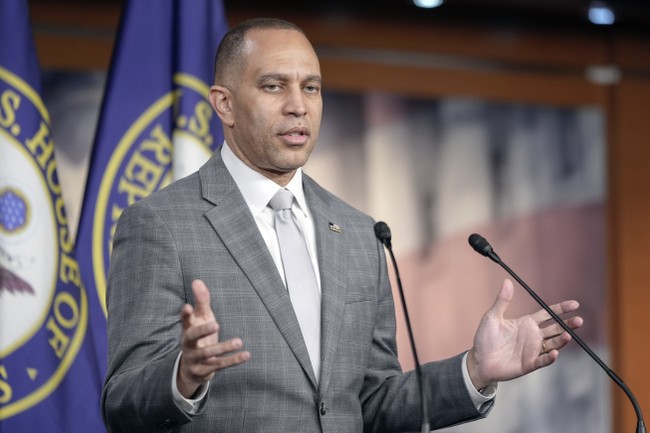ARTICLE AD BOX
Edit Zgut-Przybylska is an assistant professor at the Polish Academy of Sciences, a research affiliate at the Central European University Democracy Institute and co-author of the book “Russia and the Far-Right: Insights from Ten European Countries.”
After it was announced that a “major international firm” would provide substantial funding for Hungary’s biggest (and government-linked) football club Ferencvárosi, we now know the sponsor is likely to be Russian oil giant Gazprom.
Unsurprisingly, state-backed media has widely portrayed this sponsorship brokered by Gábor Kubatov — Ferencvárosi president and also deputy chairman of Hungary’s ruling Fidesz party — as a win: “The more international companies that invest in our sport, the better,” according to the Hungarian Ministry of Foreign Affairs and Trade.
But while Gazprom may not be on the EU sanctions list, this deal is symptomatic of burgeoning Russian influence in Prime Minister Viktor Orbán’s Hungary. Orbán’s friendship with Russian President Vladimir Putin is an embrace between two nationalistic strongmen, who openly condemn Western liberalism and have reshaped their countries’ political systems.
By deepening economic relations with both China and Russia, Orbán hopes to give Hungary an oversized say in global decision-making. And his “friendship” with Putin is feeding the ever-growing clientelism within his government and funding his cronies.
Orbán’s childhood friend — and the wealthiest oligarch in Hungary — Lőrinc Mészáros is a key example of this. His company Mészáros és Mészáros Kft was awarded the contract to build the country’s Paks 2 nuclear power plant — a much-delayed €12.5 billion project largely financed by Russian loans — pushing Hungary further into the Kremlin’s orbit, in direct contrast to the rest of Europe.
Meanwhile, news of the Gazprom deal broke shortly after Czech and Polish authorities had exposed Voice of Europe — a Fidesz-aligned news site — for spreading pro-Russian propaganda and paying European politicians in Germany, France, Poland, Belgium, the Netherlands and Hungary. The site, which had been running relentless anti-Ukraine and far-right content since 2022, was subsequently sanctioned, alongside Ukrainian oligarch and Kremlin ally Viktor Medvedchuk and Artem Pavlovich Marchevskyi, who was allegedly behind the operation.
This all underscores a shift in Russia’s influence on Hungary. Before the illegal invasion of Ukraine, relations between Orbán and Moscow were already developed, but they weren’t quite so deep. Moreover, the activities of Russia’s Federal Security Service in Hungary was largely fragmented, and seemingly focused on obtaining as many local enablers in the country as possible.
 While Gazprom may not be on the EU sanctions list, this deal is symptomatic of burgeoning Russian influence in Prime Minister Viktor Orbán’s Hungary. | Olga Maltseva/Getty Images
While Gazprom may not be on the EU sanctions list, this deal is symptomatic of burgeoning Russian influence in Prime Minister Viktor Orbán’s Hungary. | Olga Maltseva/Getty ImagesNow, however, Hungary’s considered a “safe haven” for Russian spies, and Moscow has a direct line to Orbán’s government. The Hungarian prime minister is one of only two EU leaders to have met with Putin since the outbreak of the Ukraine war, speaking warmly of his relationship with the Russian leader. And after holding up European efforts to supply Ukraine with aid since 2022, Orbán’s increasingly seen as a Kremlin shrill.
For example, while other European countries have been downgrading the size of their staff at Russian embassies and consulates, staff numbers at the Russian Embassy in Budapest are on the rise.
The International Investment Bank — a multilateral financial institution controlled by the Russian government and headquartered in Budapest since 2019 — enjoyed full diplomatic immunity until 2023, something neighboring Slovakia refused when Russia broached the possibility of moving its headquarters to Bratislava. And under the agreement with the Hungarian government, this immunity extended not just to top bank officials but all employees and consultants, as well as any guests the bank invites from Russia or third countries, who then had freedom of movement within the Schengen area.
Russian hackers have also routinely accessed the servers of the Hungarian Foreign Ministry with no official diplomatic response from Budapest. What’s more, the foreign ministry was aware that invaluable national security data had been stolen from its computers. And, more overtly, Hungarian state media has been relentlessly spreading Kremlin misinformation to justify Russia’s actions in Ukraine. According to pro-government outlets, it’s the U.S., the EU and NATO who are warmongers, and Ukraine has no borders, as “it did not register them” with the U.N.
Additionally, at Orbán’s request, Patriarch Kirill of Moscow — the head of the Russian Orthodox church — wasn’t included in a proposed EU sanctions list. Kirill is a key propagandist for Putin, and his church has benefited from robust financial support from the Hungarian government, despite the fact that only 14,000 Hungarian citizens identify as Orthodox.
Though frustrated by all this, Brussels and Washington seem flummoxed about how to halt Hungary’s alignment with autocracies. Instead, they’ve been kicking the can down the road or cutting short-term deals. But the scale of Russian influence in Hungary now — and Orbán’s readiness to allow it and profit from it — requires immediate action.
There’s also a strong argument to be made for invoking the Global Magnitsky Human Rights Accountability Act, sanctioning high-level Hungarian government officials and oligarchs involved in Russian-sourced foreign direct investment projects. Mészáros warrants particular focus here, given his involvement in several Moscow-allied projects, including a Є10.6 million loan provided by his bank to French opposition leader Marine Le Pen’s 2022 presidential campaign at Orbán’s behest.
All in all, the deepening ties between Russia and Hungary can’t be allowed to go unchecked any longer.
.png)
 9 months ago
7
9 months ago
7








 English (US)
English (US)